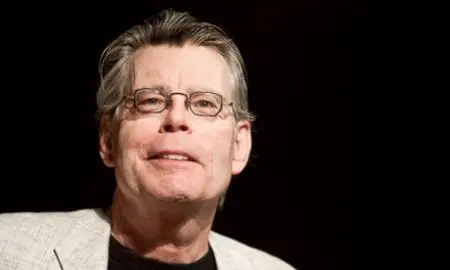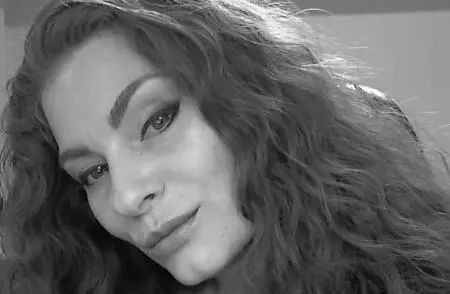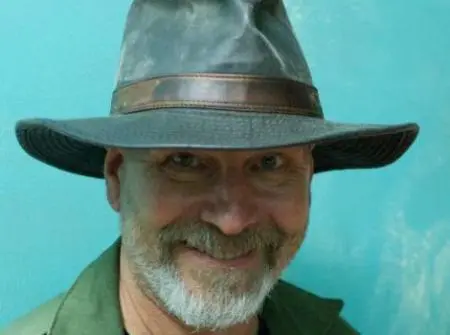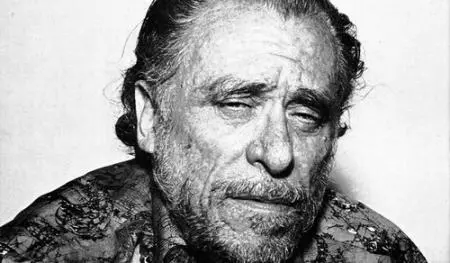From the new writer just finding her feet to the full-time professional, so many writers struggle with self-doubt. So much so that sometimes it’s crippling, even preventing us from doing the very thing we purport to love—writing. And it doesn’t get easier with professional sales. In fact, during a podcast conversation with Damien Angelica Walters she actually said she believes it gets harder. But there are coping strategies. After all, if there weren’t then all those afflicted by self-doubt would have given up. Here are tips for dealing with self-doubt from six of the best writers in the business today.
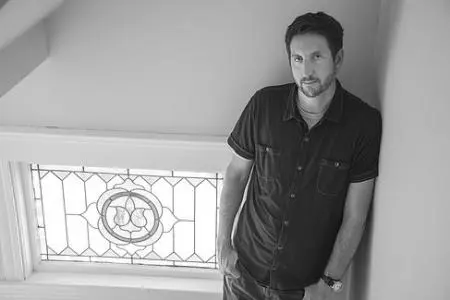
Paul Tremblay
Paul Tremblay’s latest book, A Head Full of Ghosts, won the This Is Horror Novel of the Year. Tremblay is an American author and editor of contemporary horror, dark fantasy, and science fiction. His forthcoming novel, Disappearance at Devil's Rock, will be released on 21 June by William Morrow.
I struggle with self-doubt every time I sit down to write. Its severity fluctuates, but it's always there, and some level of it should be there, frankly. I think it's healthy. I'd be more worried about myself if I thought that when I sat down manna was about to pour out of my fingers (eww… and that would be messy, wouldn't it?). Every writer is different but doubt, at times, drives me, and makes me want to get better.
That said there are times when the self-doubt feels overwhelming and unproductive. I wish I had a magic answer to making it go away; it doesn't go away, but it can be managed. While writing my most recent novel, Disappearance at Devil's Rock, the self-doubt was almost crippling at times. Part of the problem was that things had been going so well with A Head Full of Ghosts that I got stuck thinking things like, "AHFoG was so much easier to write, why can't this book be like that one?" When I was able to calm down and be somewhat rational, I could remember the times during the writing of AHFoG when I wanted to quit and chuck it all, and remind myself that self-doubt was normal and even necessary. I was able to at least talk myself into sitting down and keeping going with DaDR.
For the times when I'm still filled with anxiety that isn't going away, I get up and walk away from the computer and go do something else; exercise or chores; something physical. It's important to give yourself permission to bail on writing and not beat yourself up too much about it. More times than not, when I'm not actively thinking about the book, an idea or a solution to a problem in the story bubbles up.
Stephen King
In On Writing King said of his self-doubt, “Writing fiction, especially a long work of fiction can be a difficult, lonely job; it’s like crossing the Atlantic Ocean in a bathtub. There’s plenty of opportunity for self-doubt.”
Years later, in a 2014 interview with Rolling Stone, King explained how his fear of failure manifests in dreams, “The one that recurs is that I'm going to be in a play, and I get to the theater and it's opening night and not only can I not find my costume, but I realize that I have never learned the lines.” Despite years of success King tells Rolling Stone, “I'm afraid of failing at whatever story I'm writing – that it won't come up for me, or that I won't be able to finish it.”
But perhaps his closing thoughts on writing unlock how he copes with – or at least perseveres through – doubt. “It fulfills me. There are two things about it I like: it makes me happy, and it makes other people happy.” Such sentiments remind me of British playwright and novelist W. Somerset Maugham who said, “We do not write because we want to; we write because we have to.” Many writers echo his words today.
If you’re looking for something a little more specific or motivational then read what King has to say, again in On Writing, about the creative muse.
There is a muse, but he’s not going to come fluttering down into your writing room and scatter creative fairy-dust all over your typewriter or computer. He lives in the ground. He’s a basement kind of guy. You have to descend to his level, and once you get down there you have to furnish an apartment for him to live in. You have to do all the grunt labor, in other words, while the muse sits and smokes cigars and admires his bowling trophies and pretends to ignore you. Do you think it’s fair? I think it’s fair. He may not be much to look at, that muse-guy, and he may not be much of a conversationalist, but he’s got inspiration. It’s right that you should do all the work and burn all the midnight oil, because the guy with the cigar and the little wings has got a bag of magic. There’s stuff in there that can change your life. Believe me, I know.
Damien Angelica Walters
Damien Angelica Walters is the author of Paper Tigers and Sing Me Your Scars (This Is Horror Short Story Collection of the Year). Her short fiction has been nominated twice for a Bram Stoker Award.
Every writer has moments of self-doubt, although when it happens, you definitely feel as though you're the only one. When it happens to me, I'm convinced I'm an imposter, a failure. I tell myself my successes have been flukes and I should permanently retire my notebook and pen. I start comparing my career to those of other writers and find mine lacking. When I'm in this mindset, the words start fighting me tooth and nail which, of course, makes the self-doubt even worse. It's an ugly cycle, and the only way to break it is to take a break. Read a lot, watch a movie, go out, do anything but write. When I do that, the negative feelings start to melt away and I remember why I write: because I love it. It isn't about accolades or anthology invitations or even sales; it's about telling the stories that I have inside me to tell.

Margaret Atwood
There’s a great passage in Atwood’s Negotiating with the Dead: A Writer on Writing that deals with what to do in situations of doubt and high anxiety.
Perhaps I have written about the subjects in this book not only because they were things about which I was anxious at the outset of my own writing life, but because many people—judging from the questions they ask—continue to be anxious about them today. Perhaps I have reached the age at which those who have been through the wash-and-spin cycle a few times become seized by the notion that their own experience in the suds may be relevant to others. Perhaps I wish to say: look behind you. You are not alone. Don’t permit yourself to be ambushed. Watch out for snakes. Watch out for the Zeitgeist—it is not always your friend. Keats was not killed by a bad review. Get back on the horse that threw you. Advice for the innocent pilgrim, worthy enough, no doubt, but no doubt useless: dangers multiply by the hour, you never step into the same river twice, the vast empty spaces of the blank page appall, and everyone walks into the maze blindfolded.
Another article in which Margaret Atwood speaks on failure is ‘Falling short: seven writers reflect on failure’ on The Guardian’s website. I highly recommend it.
John Skipp
John Skipp is one helluva guy: a New York Times bestselling author, editor, film director, songwriter, screenwriter, film producer… the list goes on. You can pick up his latest collection, The Art of Horrible People, published by Lazy Fascist Press. Here’s what Skipp had to say on self-doubt:
I don't have a lot of doubt, with regards to my writing or ideas. I only write stuff I'm in love with. When it's ready for me to write it, it lets me know.
If I'm actually stuck on a piece, it's usually because a) I have not done sufficient preparation (research, plot development), or b) because I'm just not really that into it. The first problems are simply fixed by doing the research and preparation. The second is easily fixed by dumping that shit, and doing something I am excited about.
One of the great things about collaborators, when I work with them (which is often), is that they bring their expertise and enthusiasm with them. They know things I do not, know how to do things I do not. We bounce off each other till the sparks start flying. That can come in handy, too!
Of course writing only stuff you love is all well and good but how do you know when you’re in love with a project? Skipp explains:
How do I know when I'm in love? Same way I always know I'm in love! If I can't stop thinking about them, am constantly trying to figure out ways to make their journey easier and brighter, will do any and everything in my power to make them happy, odds are pretty good that I'm totally fucking in love with them.
Now writing something long – a novel or series – is like a relationship. Some days will clearly be better than others. But if you're determined to see it through, for better or worse, you stick at it. You focus on what's working. When you start going down the wrong path, you turn the fuck around. You work on it. Because you care.

Angela Slatter
Angela Slatter is an award-winning writer based in Brisbane, Australia. Her works include the short story collections Sourdough and Other Stories and The Girl With No Hands and Other Tales. Her novel, Vigil, will be out from Jo Fletcher Books in July.
As a writer I’m no stranger to impostor syndrome; I spent a lot of time looking over my shoulder for the man in the uniform and the badge who will demand to see my certificate of authenticity, then declare it a fake. This paranoia is particularly strong at the moment when I’m on the fourth draft of a novella, which is late. I am generally the deadline queen, but this year I am the deadline clown. I have asked for so many extensions it’s embarrassing, but they’re necessary for the sake of my sanity.
One of the problems has been that I’ve become convinced I’m not capable of writing this story. As there have been more drafts, each one more difficult and time-consuming than the last, the voice in my head that says ‘You have no fricking idea what you’re doing, do you?’ gets louder and louder. When the work is this difficult, I tend to get grumpy, then I start to doubt myself, and when I doubt myself I don’t enjoy what I’m doing − and recognising that I’m not having fun is my trigger for doing an emotional virus scan to work out why there’s a negative program running in the back of my head, I need to work out why fear of failure has taken up a seat in my brain.
So I look at the story itself: why am I finding it difficult, why is it failing to develop the way I want it to? Generally, it’s because I’m trying to jam it into the wrong shape − I’ve got an idea of what it should be and I’m trying to make it grow up to be a doctor when it really wants to be a tattoo artist. I need to stop pushing and shoving, I need to be fluid enough in my thinking not to try to shape the idea too harshly or rigorously. I talk to friends about the tale and sometimes that shakes loose the things that are stuck, suddenly I know what I need to change. I need to relax and let the idea find its own shape. I need to do this before the joy of a challenge wears off, before I start to think ‘Jebus, what if I can’t actually do this? What if I am in fact the worst writer in the world? What if I am shit?’ Alas, I seldom do.
But as long as I take that time out to assess why things are going badly, I can generally get to the point where I can kick over the self-pity cart because I know it’s not ever going to get me where I need to be. A bit of self-doubt is good, it’s useful, it keeps you sharp and alert, but when it takes over it will stop you from moving forward. It will infect you with inertia and you’ll never get anything done. Here’s the thing: you’re the only one who can get moving again.
So, I remind myself of what I’ve achieved so far; I point out to myself ‘Hey, you’ve done this before. Just relax.’ Performance anxiety is no one’s friend.
If all else fails − and this is embarrassing − then I start humming a tune from a very old animated movie, called Santa Claus is Coming to Town; the dorky song is called ‘Put One Foot in Front of the Other’. It’s annoying and catchy and I know that until I fix the damned story and get over myself, I will keep humming like an idiot.
Charles Bukowski
To finish let’s turn to an extract from Charles Bukowski that illustrates eloquently why self-doubt is a positive. It’s taken from Charles Bukowski: Sunlight Here I Am: Interviews and Encounters 1963-1993, edited by David Stephen Calonne.
You are better off doing nothing than doing something badly. But the problem is that bad writers tend to have the self-confidence, while the good ones tend to have self-doubt. So the bad writers tend to go on and on writing crap and giving as many readings as possible to sparse audiences. These sparse audiences consist mostly of other bad writers waiting their turn to go on, to get up there and let it out in the next hour, the next week, the next month, the next sometime. The feeling at these readings is murderous, airless, anti-life. When failures gather together in an attempt at self-congratulation, it only leads to a deeper and more, abiding failure. The crowd is the gathering place of the weakest; true creation is a solitary act.
How do you cope with self-doubt? See you in the comments!

About the author
Michael David Wilson is the founder of the popular UK horror website, podcast, and publisher, This Is Horror. Michael is the author of the novella, The Girl in the Video, and the novel, They’re Watching, co-written with Bob Pastorella. His second novella, House of Bad Memories, lands in 2021 via Grindhouse Press. His work has appeared in various publications including The NoSleep Podcast, Dim Shores, Dark Moon Digest, LitReactor, Hawk & Cleaver’s The Other Stories, and Scream. You can connect with Michael on Twitter @WilsonTheWriter. For more information visit www.michaeldavidwilson.
